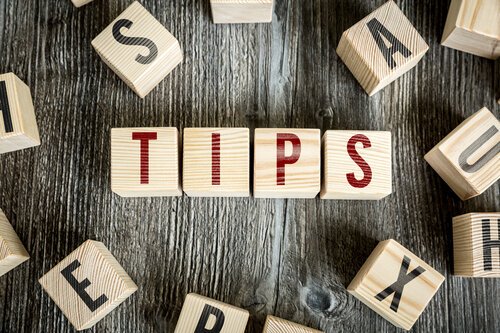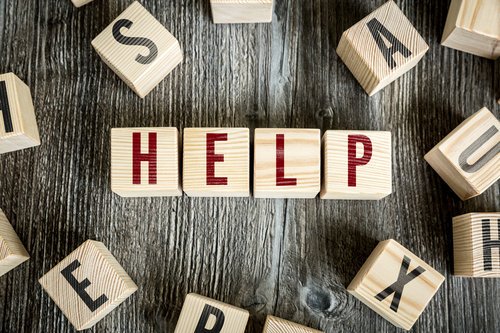
DR MARIANNE MILLER
CARING EATING DISORDER TREATMENT IN SAN DIEGO AND THROUGHOUT CALIFORNIA, TEXAS, AND WASHINGTON D.C. FOR ADULTS & TEENS

Binge eating? Three Questions to Ask Yourself from a Binge Eating Therapist.
Struggling with binge eating? Having more urges to binge since COVID hit? Or, has it always been there, lurking in the background, ready to pounce when you’re feeling especially tired, stressed, or overwhelmed. It’s so hard to deal with binge eating in San Diego and elsewhere. Regardless of whether you meet the criteria for binge eating disorder or just grapple with binge eating every once in a while, it really sucks. Sure, there may be initial relief and numbing out from stress, but after a while discomfort, guilt, and shame can set in, which is so challenging. To help you figure out what to do if you struggle with binge eating, I’ve outlined three questions to ask yourself to get you on your way.

Emotional Eating, Guilt, and How Grieving Can Help
Have you been feeling tired? Not just the tired that prompts you to go to bed early or take a nap (although you likely have been feeling that too), but the bone-deep fatigue that makes you wonder how you’re going to get through your day? I’ve also been feeling that tired.
This coronavirus situation, the one that many thought was going to be over in a couple of weeks, is dragging out longer and longer, and in many ways the end doesn’t seem in sight. Returning to normal in San Diego and elsewhere isn’t even on the radar anymore—it’ll be a new normal, one that we don’t know what will look like.

Struggling with Binge Eating During COVID-19? Five Tips for Getting Help
Do you feel stuck at home in San Diego and elsewhere, watching the news on COVID-19? Perhaps you’re filled with fear as you see the number of cases and deaths rise. Your kids may be climbing all over you or running around the house, screaming like banshees. You feel overwhelmed, isolated, and alone.
Do you feel flooded with anxiety, trapped, and you don’t know where to turn? Your eyes might drift to the stacks of food, knowing that if you start eating, you can get some temporary relief. You may even wait until everyone goes to bed to start eating so no one will know. When you do binge, does it seem like you’re detaching from your problems and numbing out?
Afterward, you might feel shame, regret, and disgust. You promise yourself that you’ll never do it again. The next morning, you may even limit your food. Then the anxiety and hunger build throughout the day, and you could end up binging all over again. You aren’t able to see an in-person eating disorder therapist or seek eating disorder treatment. What can you do to get help with your binge eating?

What to Do When You Feel Like Binge Eating
Feeling the urge to binge eat? Does it sneak up on you after work or school when you’re feeling bored, sad, or lonely? Or, does the urge hit you like a tsunami, and you feel flooded, like you’re out of control and you can’t stop your actions. Either way, binge eating can cause a lot of distress, disgust, and shame. It is so painful to live in sun-drenched San Diego and elsewhere while struggling with binge eating. While people are at the beach having fun, you feel trapped and filled with despair.
Learning how to manage the urges to binge eat can be your first step into freedom from this all-consuming behavior. In many ways, binge eating is an avoidance strategy. Eating disorder therapists in San Diego and around the world often consider binge eating as maladaptive coping mechanisms for distress. That means that when you binge eat, you’re trying to help yourself feel better, but it can end up making your life worse. Here are some tips to help you deal with the urges. The these strategies come from dialectical behavior therapy (DBT).

Need Binge Eating Help? Three Eating Disorder Dietitians Share Their Approaches to Eating Disorder Treatment
Feel out of control with your eating? Find yourself restricting your food during the daytime and overdoing it at night? Having a hard time resisting the urge to eat “forbidden” foods, especially when you feel tired and stressed? Do you experience a wave of shame after you eat a large amount of these foods—or a large amount of any foods? It sounds like you could be suffering from binge eating patterns, or even binge eating disorder (BED). I think that one of the best outpatient treatment strategies for binge eating and/or BED is to work with a therapist AND a dietitian who specialize in BED. I’ve shared my therapy approaches treating to BED, so I now wanted to convey the opinions of expert San Diego eating disorder dietitians: Theresa Carmichael, RD of Center For Discovery (and private practice), Dr. Megan Holt Hellner, RD of Potentia Therapy, and Dr. Saori Obayashi, RD of UCSD CHEAR. They have some wonderful tips on how to manage binge eating from a nutritional perspective.
***Trigger warning*** This blog post interview does include the term weight loss, as well as discussion of how some people seeking treatment for binge eating also want to lose weight. I cannot stress enough that these San Diego eating disorder dietitians do NOT advocate extreme behaviors that could trigger eating disorder symptoms. In fact, their approaches encompass reducing binge eating symptoms instead of focusing on weight loss.

Exploring Binge Eating Disorder Treatment Options? Meet UCSD CHEAR Clinical Director Dr. Rebecca Bernard
Looking for binge eating disorder (BED) treatment options in San Diego? I’ve interviewed licensed clinical psychologist Dr. Rebecca Bernard. She is the Clinical Director for the Center for Healthy Eating and Activity Research (CHEAR) at University of California San Diego (UCSD). I attended a training at UCSD by Dr. Bernard, and I really appreciated how well she understood binge eating treatment and how clearly she was able to explain the research on it.

How to Get Help for Binge Eating Disorder
Struggling with binge eating? Feeling out of control of your eating and don’t know where to turn? I have an excellent starting point for you. I discussed what binge eating disorder is and how to get help on a recent podcast on the Embodied & Well Mom Show that I did on with the fabulous Lindsay Stenovec, MS, RDN, CEDRD of San Diego’s Nutrition Instincts. I have provided a transcription of the main part of the podcast in this blog post. Enjoy!!

Five Tips for Managing Overwhelming Emotions in Eating Disorder Recovery
Have you ever felt so filled with emotion that it was almost unbearable? Do your mind and body feel flooded with feelings such as fear, anger, disgust, frustration, irritability, anxiety, or sadness—to the point at which you feel almost paralyzed? Having an eating disorder in San Diego and elsewhere is so hard. Sometimes the overwhelming emotions can be triggered by things such as discomfort with food and with your body, negative interactions with others, and work and family stress. At such times, it seems like the emotions take over both your brain and your body, and you would do anything thing in the world to make them stop. It is so so hard. Thankfully, there are a few coping strategies that can help you navigate such situations. These coping skills come from dialectical behavior therapy (DBT), which is an approach I integrate in my work with people struggling with eating disorders in San Diego.

Let's Talk About Sex and Body Image! Meet Sex Therapist Dr. Nicole Van Ness, LMFT
Have you been struggling with your body image so much that it has been affecting your sex life? Is your partner complaining that you don’t want to have sex that frequently, and you feel hesitant to share that it’s because you feel uncomfortable in your own skin? Whether you live in San Diego or elsewhere, you likely know that having a regular and fulfilling sex life is important for intimate relationships. The reality is that A LOT of people struggle with sexual intimacy, and when you have an eating disorder and feel negatively about your body, it becomes a drain on your life and relationships.
Needing answers? I have brought top expert, as well as friend and former top doctoral student of mine, Dr. Nicole Van Ness. Nicole went to school and learned her trade as a sex therapist in San Diego, and in recent years she has moved to Texas, where she has a private practice and is adjunct faculty at Southern Methodist University. Nicole has maintained her California license as a marriage and family therapist, and she provides videoconference services for individuals and couples in San Diego and other parts of California.
